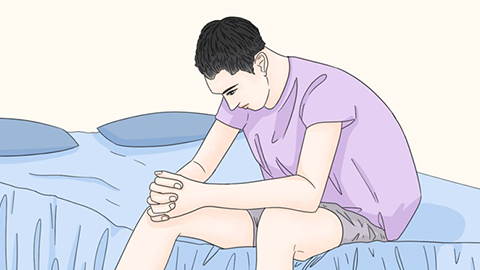What factors can cause low testosterone levels?
Generally, low testosterone levels may be caused by aging, unhealthy lifestyle habits, obesity, hypothyroidism, orchitis, and other factors. It is recommended to seek timely medical consultation to identify the underlying cause and improve the condition under a doctor's guidance through general treatments, medications, and other methods. A detailed analysis is as follows:

1. Aging: In men over 40 years old, testosterone levels naturally decline with age, decreasing approximately 1%-2% annually, which is considered a normal physiological change. Daily activities can include appropriate exercise to enhance muscle strength; eating more foods rich in zinc and protein can help maintain testosterone levels.
2. Unhealthy lifestyle habits: Long-term熬夜 (staying up late), excessive alcohol consumption, smoking, and extreme dieting can disrupt the endocrine system and inhibit testosterone synthesis. It is important to immediately adjust lifestyle habits, quit smoking, limit alcohol consumption, and ensure 7-8 hours of sleep daily; maintain a balanced diet and avoid excessive dieting or binge eating.
3. Obesity: Excess body fat converts androgens into estrogens, leading to reduced testosterone levels and potentially causing metabolic abnormalities. Weight must be controlled, and medications such as orlistat capsules, metformin hydrochloride tablets, and liraglutide injection may be used under medical guidance to assist with weight loss.
4. Hypothyroidism: Insufficient secretion of thyroid hormones affects the hypothalamic-pituitary-gonadal axis function and inhibits testosterone synthesis. Patients should follow medical advice to take medications such as levothyroxine sodium tablets, thyroid extract tablets, or levothyroxine sodium oral solution to supplement thyroid hormones and restore normal endocrine function.
5. Orchitis: Bacterial or viral infections causing testicular inflammation can damage interstitial cells of the testes, resulting in reduced testosterone secretion, possibly accompanied by testicular pain and swelling. For bacterial infections, medications such as cefuroxime axetil tablets, levofloxacin tablets, and azithromycin capsules should be taken under medical guidance to treat the infection.
In daily life, maintaining a positive mindset, avoiding excessive anxiety, and minimizing exposure to environmental endocrine disruptors are recommended. Regular monitoring of testosterone levels allows for timely detection of abnormalities and interventions to maintain hormonal balance in the body.








